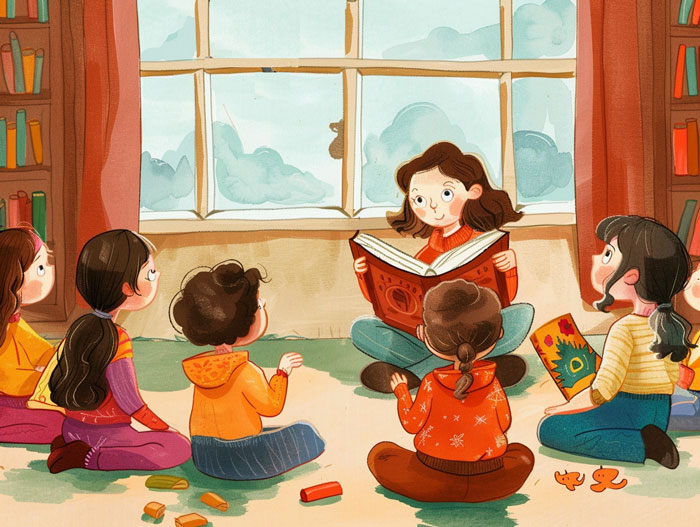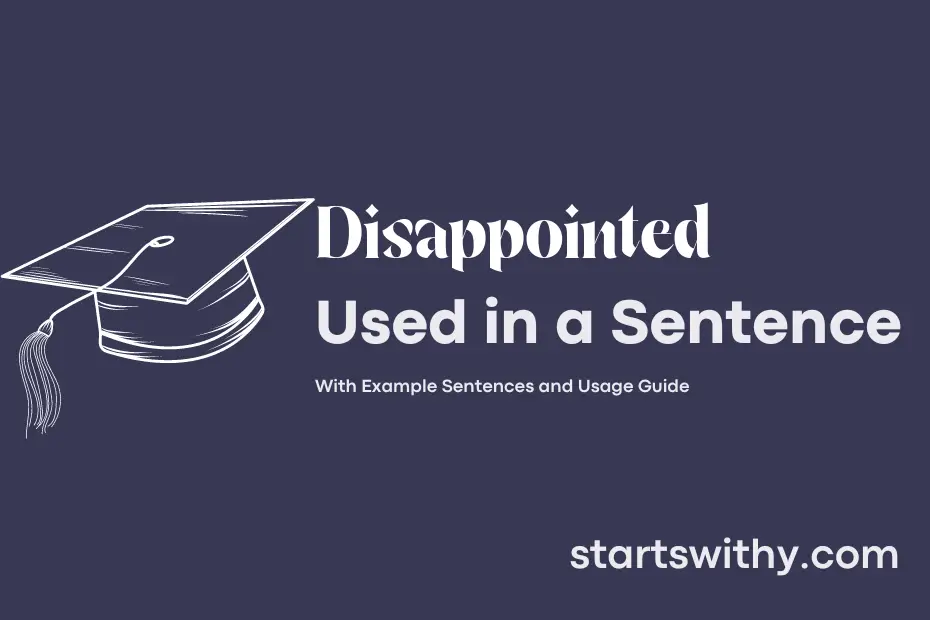Have you ever felt let down or disheartened by an outcome that didn’t meet your expectations? That feeling of disappointment, the sense of unfulfilled hopes or desires, is a universal emotion that we all experience from time to time.
When we are disappointed, we may feel sadness, frustration, or even anger. It’s a natural response to falling short of what we had envisioned or hoped for. Learning how to cope with disappointment and grow from it can help us navigate life’s ups and downs with resilience and grace.
7 Examples Of Disappointed Used In a Sentence For Kids
- I was disappointed when it rained during our picnic.
- She felt disappointed because her kite wouldn’t fly.
- He looked disappointed when he dropped his ice cream.
- We were disappointed that the playground was closed.
- The children were disappointed that there were no cookies left.
- The teacher was disappointed that some students did not finish their homework.
- The boy was disappointed when he lost his favorite toy.

14 Sentences with Disappointed Examples
- Disappointed by the delay in the release of the exam results.
- I was disappointed to see my grades after putting in so much effort.
- Disappointed with the lack of resources provided for my research project.
- Disappointed at not being selected for the internship opportunity.
- The professor’s feedback left me feeling disappointed about my presentation.
- Disappointed with the limited career guidance available at the university.
- Disappointed with the turnout at the college event I organized.
- I felt disappointed when I couldn’t secure a spot in the study abroad program.
- Disappointed with the quality of food in the college canteen.
- The cancellation of the guest lecture left many students feeling disappointed.
- Disappointed by the lack of extracurricular activities offered by the college.
- The sudden change in the exam schedule left everyone feeling disappointed.
- Disappointed at not being able to participate in the sports tournament due to a scheduling conflict.
- The textbook shortage at the library left students feeling disappointed.

How To Use Disappointed in Sentences?
To use the word Disappointed in a sentence, start by identifying a situation where you or someone else has not met expectations or hopes. For example, “I felt disappointed when I didn’t get the job after the interview.”
Next, consider the feeling of dissatisfaction or letdown that comes with being disappointed. You can express this by saying, “She looked disappointed when she saw her test score.”
Remember that Disappointed is used to show a sense of sadness or disillusionment with an outcome. For instance, “The team was disappointed with their loss in the final game of the season.”

It’s important to note that Disappointed is a strong emotion, so be mindful of the context in which you use it. For example, “He was deeply disappointed by his friend’s betrayal.”
Practice using Disappointed in various contexts to become comfortable incorporating it into your everyday vocabulary. This will help you effectively communicate feelings of dissatisfaction or regret in a clear and concise manner.
In conclusion, Disappointed is a powerful word that conveys a sense of unmet expectations or sadness. By using it thoughtfully in your sentences, you can accurately express feelings of letdown or dissatisfaction.
Conclusion
In conclusion, the examples of sentences with “disappointed” highlight feelings of letdown or dissatisfaction, often stemming from unmet expectations or unfavorable outcomes. Expressions like “I was disappointed with the service” or “She was disappointed in his behavior” convey varying degrees of displeasure or disillusionment. These sentences capture the emotions associated with disappointment, whether in relationships, experiences, or results, signaling a sense of sadness or frustration at not getting what was hoped for or expected.
By using sentences containing “disappointed,” individuals can effectively communicate their feelings of regret or disapproval in a clear and straightforward manner. Such language allows for honest expression of disappointment, fostering understanding and potentially paving the way for constructive dialogue or resolution. Through these examples, the impact of disappointments in daily life is underscored, demonstrating the importance of acknowledging and addressing such emotions in interpersonal interactions.



